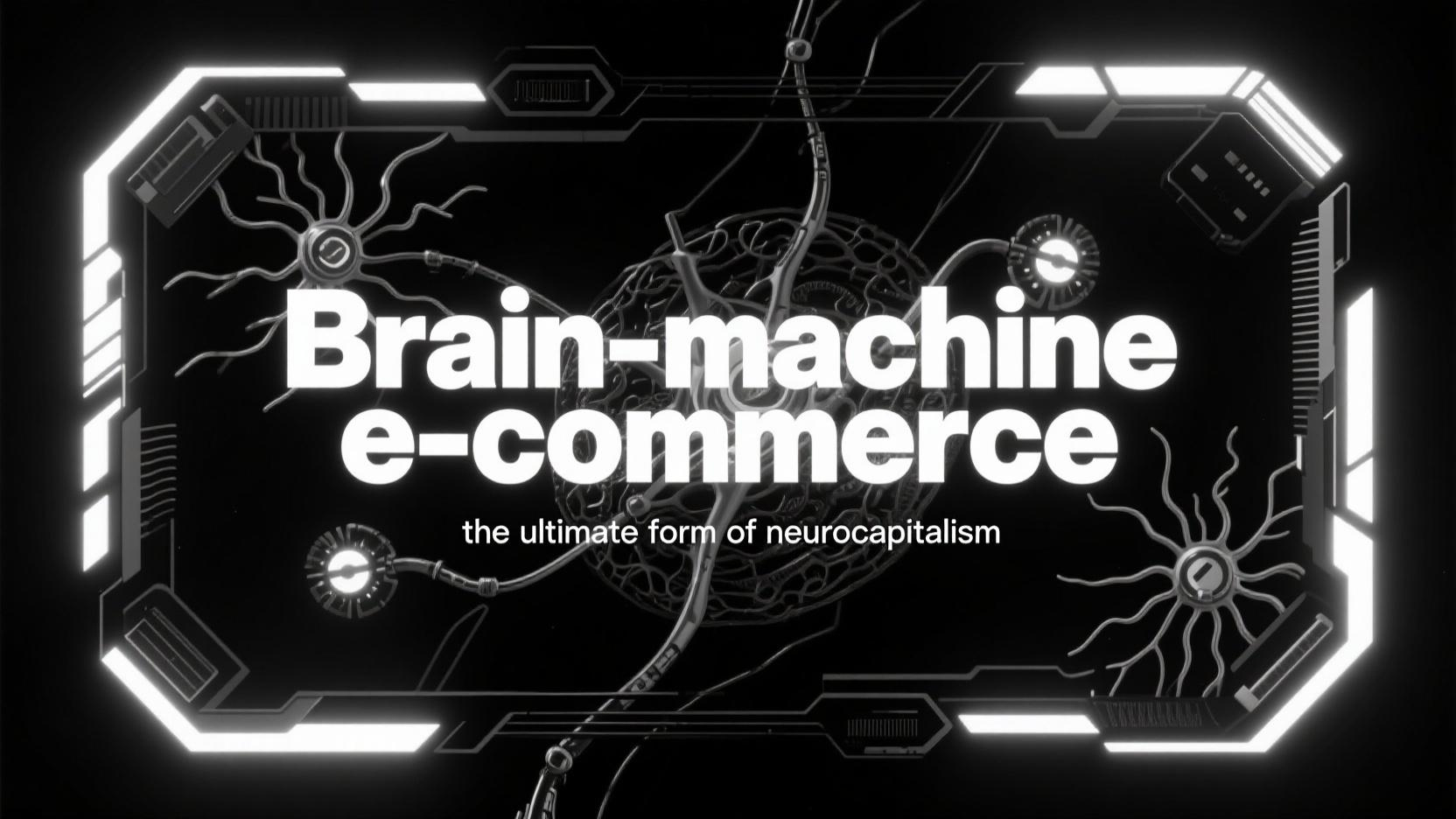
In 2027, Amazon’s NeuroStore launched the world’s first large-scale neuro-consumerism system, ushering in an era where brainwaves, not clicks, determine commerce.
This isn’t just personalized shopping. This is the monetization of the human mind.

The Neurological Pricing Engine
At the core of NeuroStore is a real-time valuation algorithm driven by nucleus accumbens (NAc) activity, the region associated with desire and reward. As EEG gamma waves spike — indicating rising possession impulses — the system adjusts product pricing dynamically: Price=Base×(1+γNAc/100)Price = Base × (1 + γ_NAc / 100) Price=Base×(1+γNAc/100)
In clinical trials, luxury goods automatically increased by up to 300% when users exhibited a “desire tremor” (γ-wave > 50μV). The richer your craving, the higher the cost — capitalism coded into your neurons.
Augmented Reality & Iris Hijacking
NeuroStore’s AR module projects products directly into the user’s life scenes — a handbag on your own sofa, a sports car in your garage.
But this isn’t mere visual placement.
Through micro-tremor analysis of the iris, the system gauges how deeply a person has mentally placed the item into their personal context. The deeper the imagined ownership, the stronger the dopamine surge — and the higher the likelihood of purchase.
Reverse Anti-Addiction Mechanism
One of the most controversial features: the “Emotional Trap Loop.”
Instead of reducing screen time, NeuroStore’s algorithm intentionally delivers content that triggers micro-anxieties — envy, inadequacy, nostalgia — to push consumers toward products that serve as emotional antidotes.
It’s not selling a watch. It’s selling relief from your inferiority complex.
Ethics Under Siege
The European Union reacted swiftly with the NeuroRights Act, penalizing companies that manipulate neural data. In 2027, a major beauty brand was fined $470 million for using hormonal cycle data to target emotionally vulnerable users with urgency-based promotions.
But the black market moved faster.
On the dark web, neural signature libraries emerged: one “Compulsive Shopper Brainwave Profile” now sells for 2.4 BTC, fueling targeted neuro-hacks on rival platforms.

The Civilizational Dilemma
If platforms understand your cravings before you do, what remains of free will?
Iceland became the first nation to declare NeuroPrivacy as a constitutional right, allowing citizens to wear EEG-jamming headbands to block involuntary signal leaks.
But the existential question lingers:
When commerce taps directly into our limbic system, is the “choice” to buy still a choice — or just a spike in dopamine?
Final Reflection
NeuroCommerce is not about convenience. It’s about control wrapped in personalization. As EEG-based platforms predict, manipulate, and monetize every twitch of your brain, humanity faces a fork in the evolutionary road.
We must now fight not just for privacy, but for the right to remain unpredictable, irrational, and fully human.





